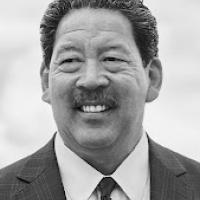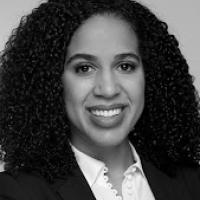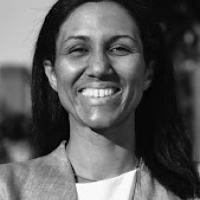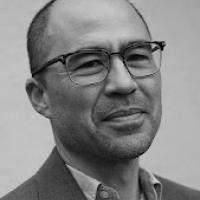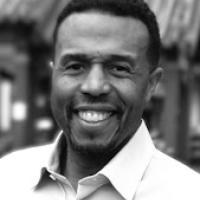Seattle Mayor Bruce Harrell is running for a second term. Harrell is an attorney who has experience representing victims of workplace discrimination and minority entrepreneurs. He was first elected to the city council in 2007 and served three terms. Harrell won his mayoral campaign in 2021 as a more centrist Democratic candidate, focusing on bridging relationships between community members and local government.
In office, Harrell has pursued an agenda focused on public safety, economic opportunity, and a high quality of life. Harrell has received mixed reviews from progressive organizations and advocates.
His supporters praise his steady and balanced support for Seattle's post-COVID economic recovery in the city’s struggling downtown core. While he hasn’t been an outspoken advocate of police reform, Harrell's supporters point to his launch of the CARE department. This alternative public safety branch has responded to 1,400 crisis calls, diverting work from law enforcement and providing a more appropriate behavioral health response.
Harrell won praise from a coalition of unions representing city workers for negotiating a new contract that respects their work and helps keep up with the cost of living. In addition, he blocked City Council efforts to undermine Seattle’s minimum wage. He earned the endorsements of some transportation advocates due to his support for transit choices in the largest transportation levy in the city's history. He also led the development and passage of the largest low-income housing levy in Seattle's history. Harrell’s platform emphasizes his continued support for the revitalization of the downtown core, as well as protecting Seattle residents from the Trump administration.
Harrell recently proposed addressing the city’s revenue shortfalls by substantially increasing business taxes on larger businesses. He significantly increased the exemption for small businesses and used the proceeds to fund programs that support housing stability, homeless services, food security, and small business sustainability.
Harrell has also faced criticism from some progressives in Seattle on many issues. His critics argue that he has not demonstrated the leadership and vision necessary to make progress on daunting challenges. One example is the high cost of housing. The Harrell administration has a unique opportunity to reshape Seattle's housing market through the 20-year comprehensive plan, which sets the city's strategy for building and growth. While the Mayor’s office has proposed a substantial expansion of the city’s housing capacity, they also scaled back growth opportunities from an early proposal last year. In recent months, following pushback from some vocal anti-density city council members, Harrell's office has further reduced the potential for building more affordable, higher-density housing. Housing advocates point to this backtracking as an example of where a clearer vision and more decisive leadership from the mayor's office were needed to overcome opposition on the city council. If this weakened plan is adopted, Seattle will miss out on a critical opportunity to support badly needed affordable housing, which will make it even more difficult for teachers, nurses, and artists to live in our city.
Harrell has also come under fire for the workplace culture in his office. Multiple sources described it as sexist and toxic, according to KUOW.
Harrell is not a visionary progressive leader who will drive major changes, but he is a moderate Democrat who is doing a reasonable job of balancing competing interests and managing major challenges. He is a good choice for voters who want a more centrist and experienced candidate for mayor.
Seattle Mayor Bruce Harrell is running for a second term. Harrell is an attorney who has experience representing victims of workplace discrimination and minority entrepreneurs. He was first elected to the city council in 2007 and served three terms. Harrell won his mayoral campaign in 2021 as a more centrist Democratic candidate, focusing on bridging relationships between community members and local government.
In office, Harrell has pursued an agenda focused on public safety, economic opportunity, and a high quality of life. Harrell has received mixed reviews from progressive organizations and advocates.
His supporters praise his steady and balanced support for Seattle's post-COVID economic recovery in the city’s struggling downtown core. While he hasn’t been an outspoken advocate of police reform, Harrell's supporters point to his launch of the CARE department. This alternative public safety branch has responded to 1,400 crisis calls, diverting work from law enforcement and providing a more appropriate behavioral health response.
Harrell won praise from a coalition of unions representing city workers for negotiating a new contract that respects their work and helps keep up with the cost of living. In addition, he blocked City Council efforts to undermine Seattle’s minimum wage. He earned the endorsements of some transportation advocates due to his support for transit choices in the largest transportation levy in the city's history. He also led the development and passage of the largest low-income housing levy in Seattle's history. Harrell’s platform emphasizes his continued support for the revitalization of the downtown core, as well as protecting Seattle residents from the Trump administration.
Harrell recently proposed addressing the city’s revenue shortfalls by substantially increasing business taxes on larger businesses. He significantly increased the exemption for small businesses and used the proceeds to fund programs that support housing stability, homeless services, food security, and small business sustainability.
Harrell has also faced criticism from some progressives in Seattle on many issues. His critics argue that he has not demonstrated the leadership and vision necessary to make progress on daunting challenges. One example is the high cost of housing. The Harrell administration has a unique opportunity to reshape Seattle's housing market through the 20-year comprehensive plan, which sets the city's strategy for building and growth. While the Mayor’s office has proposed a substantial expansion of the city’s housing capacity, they also scaled back growth opportunities from an early proposal last year. In recent months, following pushback from some vocal anti-density city council members, Harrell's office has further reduced the potential for building more affordable, higher-density housing. Housing advocates point to this backtracking as an example of where a clearer vision and more decisive leadership from the mayor's office were needed to overcome opposition on the city council. If this weakened plan is adopted, Seattle will miss out on a critical opportunity to support badly needed affordable housing, which will make it even more difficult for teachers, nurses, and artists to live in our city.
Harrell has also come under fire for the workplace culture in his office. Multiple sources described it as sexist and toxic, according to KUOW.
Harrell is not a visionary progressive leader who will drive major changes, but he is a moderate Democrat who is doing a reasonable job of balancing competing interests and managing major challenges. He is a good choice for voters who want a more centrist and experienced candidate for mayor.
